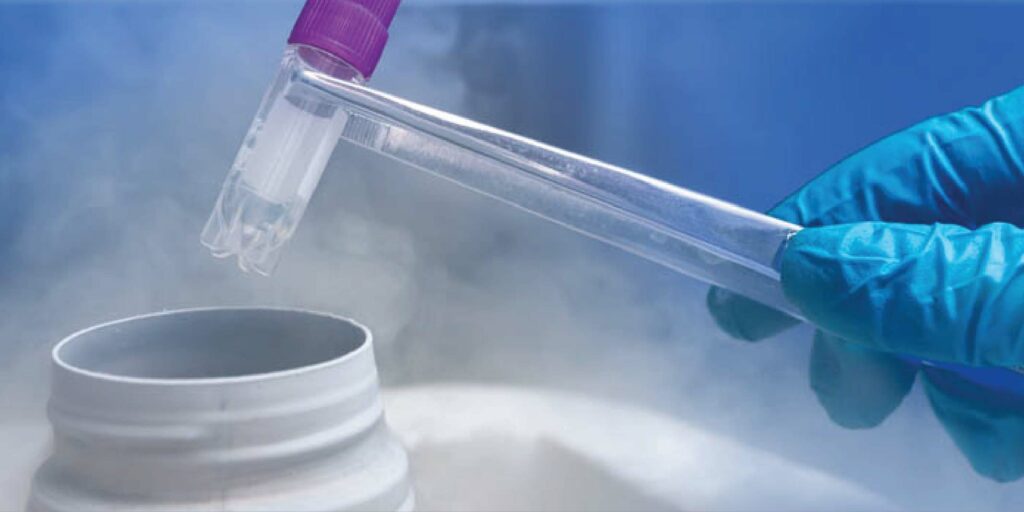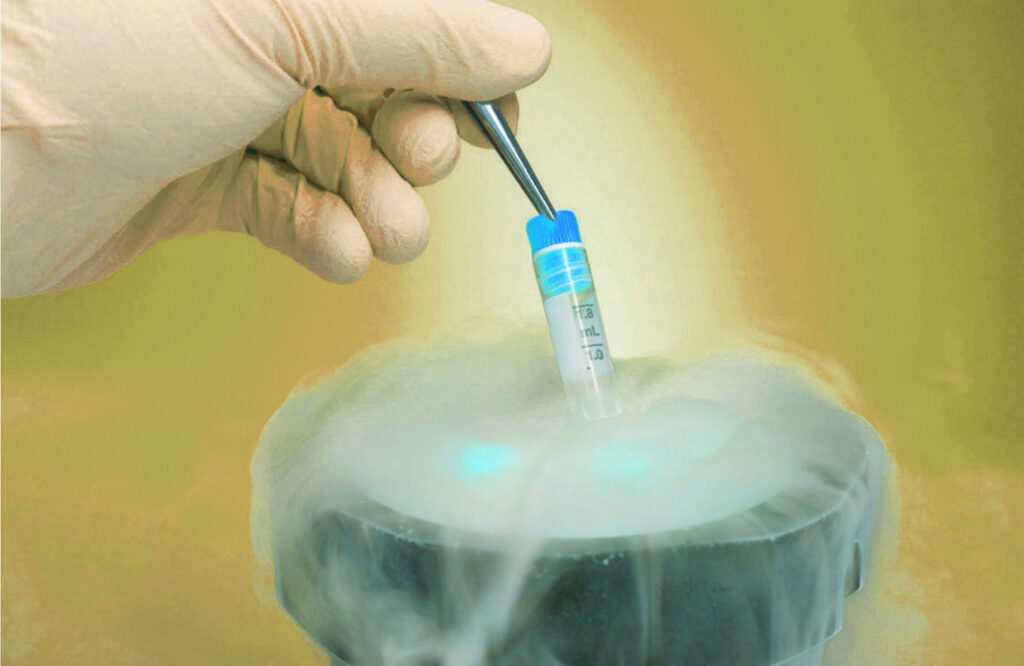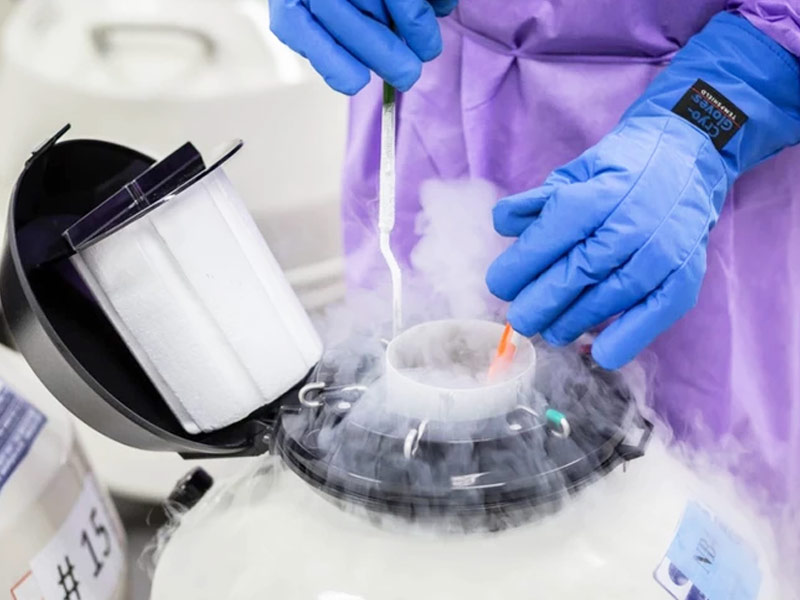Introduction
Egg freezing, also known as oocyte cryopreservation, has revolutionized reproductive technology, offering individuals the opportunity to preserve their fertility for future family planning. This advanced procedure involves the retrieval, freezing, and storage of a woman’s eggs to be used later when she’s ready to conceive. In this comprehensive guide, we delve into the science behind egg freezing, exploring the process, benefits, and implications for fertility preservation.

Understanding Egg Freezing
Egg freezing is a method of preserving a woman’s fertility by extracting her mature eggs, freezing them using a process called vitrification, and storing them for future use. The procedure begins with ovarian stimulation, where the woman undergoes hormonal treatments to stimulate multiple egg follicles to mature simultaneously. Once the follicles reach optimal size, the eggs are retrieved through a minimally invasive procedure called transvaginal ultrasound-guided follicle aspiration.
The retrieved eggs are then evaluated for maturity and quality before undergoing vitrification, a rapid freezing technique that prevents the formation of ice crystals, preserving the eggs’ integrity during freezing and thawing. Once frozen, the eggs are stored in specialized cryogenic tanks at ultra-low temperatures (-196°C) until they are needed for fertility treatment.
Benefits of Egg Freezing

1. Fertility Preservation
Egg freezing allows women to preserve their fertility and reproductive options, providing peace of mind for those facing medical treatments or life circumstances that may impact their future fertility, such as chemotherapy, radiation therapy, or career pursuits.
2. Delayed Childbearing
Egg freezing enables women to postpone childbearing without compromising their chances of conceiving later in life. By freezing their eggs at a younger age when fertility is optimal, women can extend their reproductive lifespan and pursue educational, career, or personal goals.
3. Medical Conditions
Women with medical conditions that may affect fertility, such as endometriosis, polycystic ovary syndrome (PCOS), or premature ovarian insufficiency (POI), may benefit from egg freezing as a proactive measure to preserve their fertility before undergoing treatments that could impair ovarian function.
4. Family Planning
Egg freezing offers flexibility and control over family planning decisions, allowing women to choose the timing of parenthood based on personal and lifestyle preferences. Whether they’re not ready for children yet or haven’t found a suitable partner, egg freezing provides options for future family building.
5. Donor Egg Banking
Egg freezing also plays a crucial role in donor egg banking programs, providing a reliable supply of donor eggs for individuals and couples struggling with infertility or genetic disorders that may necessitate the use of donor gametes.
Challenges and Considerations
While egg freezing offers numerous benefits, it’s essential to consider the potential challenges and limitations associated with the procedure. These may include:

- Success Rates: The success of egg freezing depends on various factors, including the woman’s age, ovarian reserve, and the number and quality of eggs retrieved. While egg freezing can significantly extend the window of fertility, it does not guarantee a successful pregnancy.
- Financial Costs: Egg freezing can be costly, involving expenses for ovarian stimulation medications, egg retrieval procedures, laboratory fees, and long-term storage. Insurance coverage for egg freezing may vary, and financial planning is essential for individuals considering the procedure.
- Ethical and Social Considerations: Egg freezing raises ethical and social questions regarding reproductive autonomy, informed consent, and the commodification of reproductive tissues. It’s essential to discuss these issues with healthcare providers and consider personal values and beliefs when making decisions about fertility preservation.
Advances in Egg Freezing Technology
Recent advancements in egg freezing technology have significantly improved the success rates and outcomes of the procedure. One notable innovation is the widespread adoption of vitrification, a flash-freezing technique that minimizes cellular damage and improves the survival rate of frozen eggs during thawing. Vitrification has revolutionized egg freezing, leading to higher pregnancy rates and better overall outcomes for individuals undergoing fertility treatment.
Another notable advancement is the use of preimplantation genetic testing (PGT) in conjunction with egg freezing. PGT allows for the genetic screening of embryos created from thawed eggs, identifying genetic abnormalities and chromosomal disorders before embryo transfer. By selecting chromosomally normal embryos, PGT can improve the likelihood of a successful pregnancy and reduce the risk of miscarriage or genetic conditions in offspring.
Fertility Preservation for Cancer Patients
One of the most significant benefits of egg freezing is its role in fertility preservation for cancer patients undergoing treatments such as chemotherapy or radiation therapy. These treatments can damage ovarian function and diminish fertility, potentially leading to premature ovarian failure or infertility. Egg freezing provides a proactive solution for preserving fertility before cancer treatment, allowing patients to pursue parenthood after completing their cancer therapy.
Social Egg Freezing
Social egg freezing, also known as elective egg freezing, has gained popularity among women who wish to delay childbearing for personal or professional reasons. This trend reflects shifting societal norms and evolving attitudes toward family planning and career advancement. By freezing their eggs at a younger age, women can extend their reproductive lifespan and maintain the option to start a family later in life, when they feel more prepared and established in their careers or personal lives.
Egg Donation and Surrogacy
In addition to preserving their own fertility, egg freezing also plays a vital role in assisted reproduction techniques such as egg donation and surrogacy. Women who choose to donate their eggs can undergo the egg freezing process to preserve their fertility while helping others struggling with infertility to achieve their dreams of parenthood. Similarly, individuals or couples using a gestational surrogate to carry their child may utilize frozen donor eggs to create embryos for transfer.
Future Directions and Research
As egg freezing technology continues to evolve, ongoing research aims to improve the safety, efficacy, and accessibility of the procedure. Scientists are exploring innovative techniques to enhance egg quality, optimize ovarian stimulation protocols, and refine freezing and thawing methods. Additionally, advancements in reproductive genetics and stem cell research hold promise for further enhancing the success rates of egg freezing and expanding fertility preservation options for individuals facing medical challenges or age-related infertility.
Conclusion
Egg freezing represents a groundbreaking advancement in reproductive medicine, offering women the opportunity to preserve their fertility and take control of their reproductive futures. By understanding the science behind egg freezing, including the process, benefits, and considerations, individuals can make informed decisions about whether egg freezing is the right choice for them. Whether for medical reasons, lifestyle considerations, or family planning goals, egg freezing provides a valuable option for preserving fertility and pursuing parenthood on one’s own terms.
